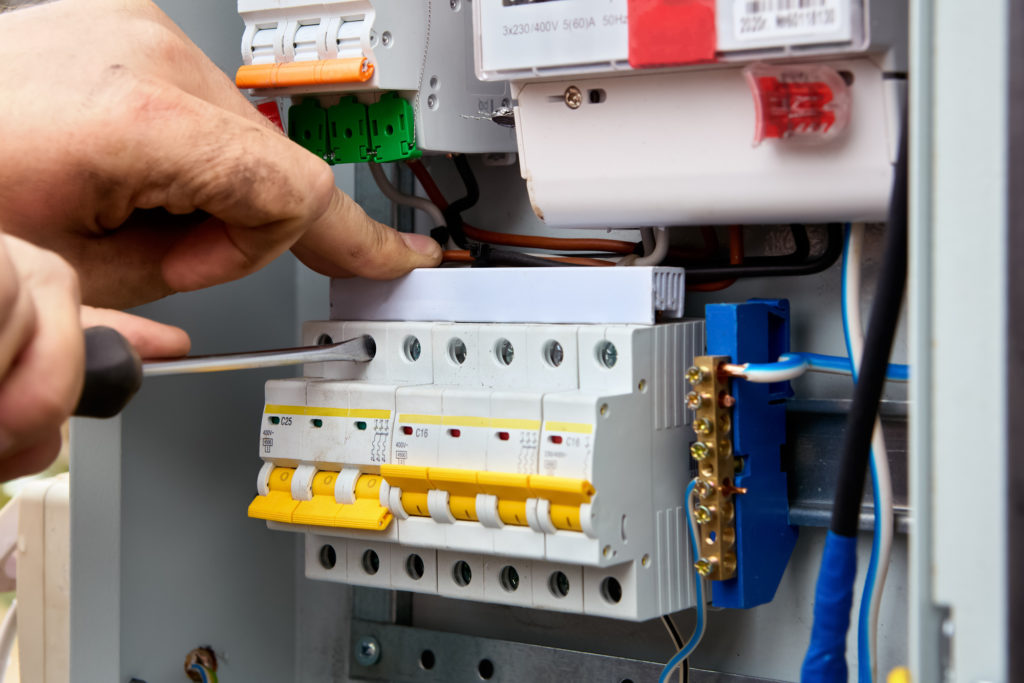As a homeowner, you need to have adequate knowledge about your home’s electrical system, as it’s responsible for keeping your home safe, comfortable, and functional. Although electricity is a force to reckon with, knowing the basics would be useful during emergencies.
For example, it is best to be familiar with the components of the electrical panel board, ranging from the breaker to the busbars to maintenance tips. It could be an advantage whenever the need for such knowledge arises.
In case you’re not confident with your knowledge and skills, you can check out online sources and look into electrical system safety basics. Better yet, you can read through this article as it will take a closer look at the essential information about electrical systems every homeowner needs to know about.
1. Be Familiar On How An Electrical Panel Board Works
For any homeowner, it’s crucial to know everything about the electrical panel board. Consider it as an essential element that’ll come in handy if you need to switch off the electricity during an emergency or if you’re dealing with a flipped circuit breaker due to an overload.
An electrical panel board links the main external wire from the street and the internal wires of your home’s electrical system. In most homes, the electrical panel board’s location is discreet, usually found in the garage or basement.
Here are the key components you’ll find in an electrical panel board:
- The main breaker is a prominent switch responsible for controlling the general power in your home.
- A single pole breaker looks similar to a single light switch and distributes power to low amp items such as lighting. A double-pole breaker appears as a double light switch and allocates power to high amp items such as electronics and appliances.
- Arc fault circuit interrupters (AFCIs) are miniature breakers that prevent fire due to accidental electrical discharge.
- The empty slots are available for future use in case of an increase in power consumption.
- A sub-panel or a small breaker box is usually added if you have a new room in your home.
You also find the busbars, which are copper or aluminum bars or strips responsible for distributing power to rows of circuit breakers. To better understand how busbars work, you can check out this online source that explained the busbars purpose.
Knowing the functions of all the components in an electrical panel board is useful during emergencies. Remember to label every breaker to save time during emergencies.

2. Prioritize Safety At All Times
One of the key considerations for every homeowner when dealing with the electrical system is maintaining safety. When you handle any aspect of the electrical system, you have to be careful.
For example, you’ll replace the fuse at some point after installation. When doing that, make sure to switch off all appliances during the task. Doing so ensures that your appliances stay safe if you face issues while changing the fuse or if it starts burning.
In another scenario, avoid changing the fuse under dark conditions with minimal visibility. Working on the task in the dark can put you at risk of directly touching a live wire connection. Therefore, use a flashlight when changing a fuse.
But, if you’re uncertain about what to do with this situation, consider hiring a professional to do the job.
3. Perform Routine Inspection Of The Electrical System
Once you find any faulty switches, damaged outlets, and frayed wiring, they need immediate replacement. Any damage can potentially put your home at risk for a fire. For example, damaged wires that are transmitting electricity throughout your home or electronic devices or appliances often present as a major electrical fire hazard or may cause shock and electrocution.
The electrical panel board requires a yearly inspection to ensure all components function properly, especially the breakers. Also, be on the lookout for any loose connections, signs of deterioration, or heating inside the panel. The best way to ensure the panel’s condition is to call a professional to conduct a thorough inspection.
Make sure to invest in good-quality replacements. Avoid buying cheap replacement parts such as outlets, switches, or substandard components such as surge protectors or extension cords. Doing so will only put your home at risk.
4. Avoid Overloading The Outlets
A common mistake among many homeowners is overloading a single outlet, where several appliances or electronics are being plugged into it simultaneously. What is initially considered a convenience can become a major issue later on. Avoid overkilling your electrical system to save yourself the hassle of dealing with the fuse box every time the breaker trips.
The same applies if you have been using an extension cord. In such circumstances, the ideal approach to cater to the increasing electrical needs of your household and accommodate more appliances or electronics is hiring a professional to install new electrical outlets.
Final Thoughts
As a homeowner, make it a priority to be familiar with the electrical system. Doing so ensures your safety whenever you have to deal with electrical issues at home. You can take informed measures such as turning off the power supply during emergencies or when dealing with a tripped circuit breaker. By being knowledgeable about your home’s electrical system, you can handle electricity with care at all times.











